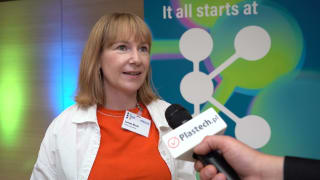
KeyKeg’s early success with a keg using a cardboard outer shell revealed a clear limitation, vulnerability to moisture and rain. The response was the slimline series with Double Wall Technology, which replaced the cardboard with a second PET layer. The dual PET walls increased structural robustness and resistance to damage, making the design suitable for highly carbonated beverages and long, variable distribution routes. The company holds a patent for this double wall design. Industrialisation followed, with the first automated production and assembly line for KeyKeg starting up in 2012 in Den Helder, the Netherlands, then new factories in the United States, United Kingdom, Spain and Germany. In 2014, the portfolio extended beyond beverages to non-food applications such as liquid glue. By 2016, the range broadened again with UniKeg, a line that features a traditional spear and Sankey S & D connection and is positioned as a cost-effective alternative to steel kegs while retaining quality and safety characteristics. In 2021, the company was acquired by investor Dr. Ulrich Knapp. In 2025, the KeyKeg A valve was introduced to simplify and improve the efficiency of filling and dispensing.
Customer support and iterative development
The organisation frames customer feedback and continuous innovation as core pillars, with customer support integral to product refinement. As expressed internally, "Customer experience is at the heart of our brand." Naomi Chün, Service & Support Manager, said: "The company is not just about the product itself, but also about the service and support behind it." She added: "We don’t just solve problems. We go the extra mile by collaborating with customers to improve their processes. This collaborative approach builds trust and turns challenges into opportunities for growth. Hearing back from customers that we not only solved their problem but also made their process better is incredibly fulfilling."
According to Chün, this approach has underpinned growth for two decades. "The loyalty we show to our customers is reflected in the loyalty they show to us. We are truly grateful to our customers for their trust and loyalty over the years." Direct feedback has guided specific improvements, including offering pre-flushed KeyKegs, a measure requested to streamline filling and save time. "Every piece of customer input helps us improve ourselves and our product," she said.

Circularity efforts and material profile
Sustainability has been central to the company’s direction from the outset. OneCircle has pursued circularity by building recycling initiatives and expanding collection networks. Through a network of Return Partners, empty kegs are collected, recycled and converted into raw materials for new kegs, supporting closed-loop material use. Today, KeyKeg is reported to be 86% recyclable and manufactured with up to 57% circular materials. The company states it is committed to increasing the share of recycled content to become more circular over time. The OneCircle name references the aim of keeping materials in continuous use in a closed loop, rather than discarding them as waste.
From a three-person startup to a global supplier, the 20-year trajectory combines iterative product engineering, process scale-up and a stated focus on customer care. With ongoing developments such as the KeyKeg A valve and continued recycling initiatives, the company positions its PET keg systems to support more sustainable beverage packaging.




